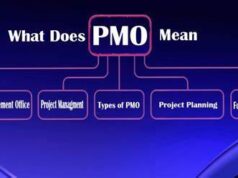Iron is an essential mineral which functions as an oxygen carrier for the body, keeping the immune system healthy and helping the body to produce energy. Iron is necessary for metabolism and is an essential part of DNA synthesis.
According to Lancet Laboratories, approximately 20% of the world’s population is found to be iron deficient.
Clinical Nutritionist, Dr. Hester Visagie, attributes the cause of iron deficiency to a lack of minimum requirements in the daily diet coupled with iron losses from menstruation, pregnancy or blood loss.
Poor iron absorption is also a cause, especially with non-heme iron found in plants and dairy products which is not as easily absorbed by the body as heme iron which is found in red meat and liver.
Common Signs of Iron Deficiency
Anemia with symptoms of tiredness or weakness
Lack of concentration and memory loss
Dizziness or headaches
Feelings of apathy and depression
Pica – a desire to eat clay or soil or a craving for cold items such as ice cubes
Brittle nails
Lowered immune system
Mouth sores
Severe signs of iron deficiency could lead to an insufficient supply of oxygen to the heart and can affect the heart muscle.
Iron Deficiency High Risk Groups
The elderly and the poor are at risk of iron deficiency anemia due to a poor diet or being unable to afford to buy red meat,
Children undergoing a rapid growth spurt in adolescence,
Women with excessive menstrual bleeding,
Children with severe worm infestations,
People suffering from peptic ulcers, gastritis, haemorrhoids or gastro-intestinal malignancies.
Iron Absorption Enhancers
Vitamins A, C and B2 enhance the absorption of non-heme iron. Vegetarians are advised to combine vitamin C rich foods such as tomatoes, raw peppers and citrus fruit with iron-rich foods such as molasses, spinach and other dark green leafy vegetables.
Iron Absorption Inhibitors
Certain dietary components can interfere with the absorption of non-heme iron. A well-known example is tannins found in tea which bind to iron in the digestive system, compromising the absorption of iron. Other absorption inhibitors include:
Fried fast foods which contain high levels of oxylates (from seed oils),
Antacids,
High levels of calcium,
Phytates found in wholewheat cereals,
Stimulants such as coffee and carbonated fizzy drinks.
Treating an Iron Deficiency
A medical professional should be consulted as a first step in treating the symptoms of iron deficiency. Simply swallowing down supplements can be dangerous, as too much iron in the system can cause problems such as infection, cancer, joint pain and constipation. The underlying causes of anemia or iron deficiency need to be found and a doctor will probably recommend a full blood test.
A mild iron deficiency will probably be treated with an iron-rich diet coupled with a vitamin C tablet to aid absorption.
Iron Super Foods
Eating healthy foods is one of the best ways to get an adequate iron intake. Eat plenty of spinach, broccoli, cabbages (any variety), lettuce, egg yolk, red meat, liver, raisins, molasses, mushrooms and sweet potato.
















